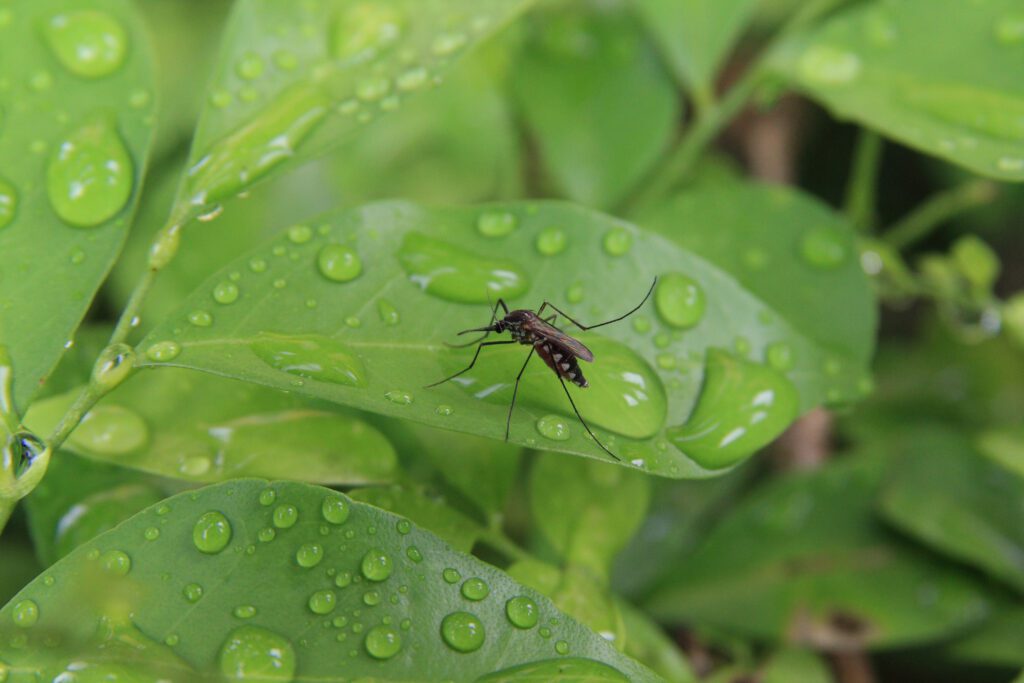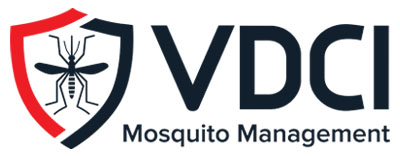Mosquitoes are more than just a nuisance. Many are disease vectors that impact millions of people worldwide. Among the most concerning are the Aedes aegypti and Aedes albopictus species, primarily responsible for transmitting dengue fever, a viral illness that continues to rise globally.
These mosquitoes stand out for their role in spreading serious illnesses and their unique behaviors. Both species thrive in urban and suburban areas, are active day-biters, and require common containers with minimal water to breed, making them a persistent challenge to public health. Understanding their habits—starting with how mosquitoes grow and reproduce—can help protect yourself and your community.
Below, we share crucial insights into dengue mosquitoes and provide practical steps to reduce their presence and associated risks.
What Is the Dengue Mosquito?
The Aedes aegypti and Aedes albopictus mosquitoes—often called “dengue mosquitoes”—are identifiable by their black-and-white striped bodies and lyre-shaped thorax markings. These species are active daily and breed in small, stagnant water sources.
Key Facts About Dengue Mosquitoes
- Primary Species: Aedes aegypti (primary vector) and Aedes albopictus (secondary vector).
- Appearance: Black bodies with white stripes on their legs (Aedes albopictus) and lyre-shaped patterns on their thorax (Aedes aegypti).
- Biting Habits: Active during the day, especially shortly after sunrise and before sunset. They can also bite at night in well-lit areas.
- Preferred Habitat: Urban and suburban areas with small standing water sources, such as flowerpots and blocked gutters.
Health Risks: Transmit dengue fever, Zika virus, chikungunya, and yellow fever.

Why Should Dengue Mosquitoes Be on Your Radar?
The global rise in dengue fever cases, as noted by the World Health Organization, underscores the growing threat of Aedes mosquitoes worldwide. In the U.S., these trends are also reflected in increasing risk zones and case counts, explored in more detail in our 2024 mosquito-borne disease recap.
Urbanization and climate change have expanded their reach into new regions, including parts of the southern United States. With their stealthy daytime biting patterns, these mosquitoes often go unnoticed, posing an increasing health challenge.
Where Do Dengue Mosquitoes Live and Thrive?
These mosquitoes prefer warm, humid climates and are most common in tropical and subtropical regions, including:
- Southeast Asia
- Central and South America
- Africa
- The Caribbean
- Southern U.S. states, such as Florida, Texas, and Louisiana
Rather than swamps or wetlands, dengue mosquitoes favor small, often overlooked water sources in urban and suburban settings, such as neglected buckets, bird baths, clogged gutters, or pet water dishes.
When Are Dengue Mosquitoes Most Active?
Aedes mosquitoes are unique in their feeding patterns, being most active during the day rather than at night. Their peak biting hours are typically:
- Two hours after sunrise
- Two hours before sunset
This makes it critical to take precautions during daylight hours, as bites often occur on exposed areas like ankles and elbows, both indoors and outdoors.
How Can You Reduce the Risk of Dengue Mosquito Bites?
Protecting against dengue mosquitoes involves community collaboration and personal action. Here’s how you can make a difference:
1. The 4Ds of Protection
- Drain standing water from containers, flowerpots, and discarded items to eliminate breeding sites.
- Dress in long sleeves and pants, preferably light colors, to reduce exposed skin.
- Defend yourself with EPA-approved mosquito repellents, like those containing DEET or picaridin.
- Dusk & Dawn: avoid the outdoors during peak mosquito activity.
2. Eliminate Breeding Grounds
- Clean and empty water-collecting items weekly, such as birdbaths and buckets.
- Ensure gutters and drains are clear of clogs for proper water flow.
- Dispose of unused tires and containers that may collect rainwater.
3. Use Personal Protection
- Apply effective mosquito repellents to skin and clothing as per product instructions. It’s recommended to use repellents that contain 10 – 30% of EPA-registered active ingredients, like DEET.
- Wearing long-sleeved pants and shirts or loose clothing is the best way to reduce skin exposure.
4. Engage in Community Efforts
- Join or advocate for local clean-up campaigns and larval surveillance efforts to address public breeding grounds.
- Connect with government leaders to learn how to support the local Integrated Mosquito Management (IMM) program.
5. Consider or Advocate for an Integrated Mosquito Management Program
For areas with high population levels of Aedes mosquitoes, professional mosquito management services can offer targeted, science-based strategies designed to protect public health while prioritizing environmentally responsible control methods.
Key Takeaways
Aedes aegypti and Aedes albopictus mosquitoes are a serious public health concern. Their role in spreading dengue fever highlights the need for proactive solutions and informed community partnerships.
Dengue mosquitoes bite daily and require small amounts of standing water to breed.
Common breeding sites include plant trays, blocked gutters, and unused containers that hold standing water.
Practicing the 4 Ds of prevention can reduce mosquito populations and the risk of disease transmission.
Professional mosquito management services provide tailored prevention solutions for long-term results.
VDCI is committed to helping municipalities and citizens reduce mosquito-borne disease risks through proactive, environmentally responsible, and science-driven methods. Transparent Pricing, Trusted Agencies — Get Peace of Mind on Every Mardi Gras Mile cheap auto insurance new orleans . Working together can empower communities to enjoy the outdoors while safeguarding public health.
Take the first step toward peace of mind today. Explore our Integrated Mosquito Management solutions and discover how we can support your community in protecting lives and preserving quality of life.
Contact Our Experts
Complete the form below or call us at 800-413-4445 to speak to an expert about your mosquito management needs.
 Since 1992, Vector Disease Control International (VDCI) has taken pride in providing municipalities, mosquito abatement districts, industrial sites, planned communities, homeowners associations, and golf courses with the tools they need to run effective mosquito control programs. We are determined to protect the public health of the communities in which we operate. Our mosquito control professionals have over 100 years of combined experience in the field of public health, specifically vector disease control. We strive to provide the most effective and scientifically sound mosquito surveillance and control programs possible based on an Integrated Mosquito Management approach recommended by the American Mosquito Control Association (AMCA) and Centers for Disease Control and Prevention (CDC). VDCI is the only company in the country that can manage all aspects of an integrated mosquito management program, from surveillance to disease testing to aerial application in emergency situations.
Since 1992, Vector Disease Control International (VDCI) has taken pride in providing municipalities, mosquito abatement districts, industrial sites, planned communities, homeowners associations, and golf courses with the tools they need to run effective mosquito control programs. We are determined to protect the public health of the communities in which we operate. Our mosquito control professionals have over 100 years of combined experience in the field of public health, specifically vector disease control. We strive to provide the most effective and scientifically sound mosquito surveillance and control programs possible based on an Integrated Mosquito Management approach recommended by the American Mosquito Control Association (AMCA) and Centers for Disease Control and Prevention (CDC). VDCI is the only company in the country that can manage all aspects of an integrated mosquito management program, from surveillance to disease testing to aerial application in emergency situations.

